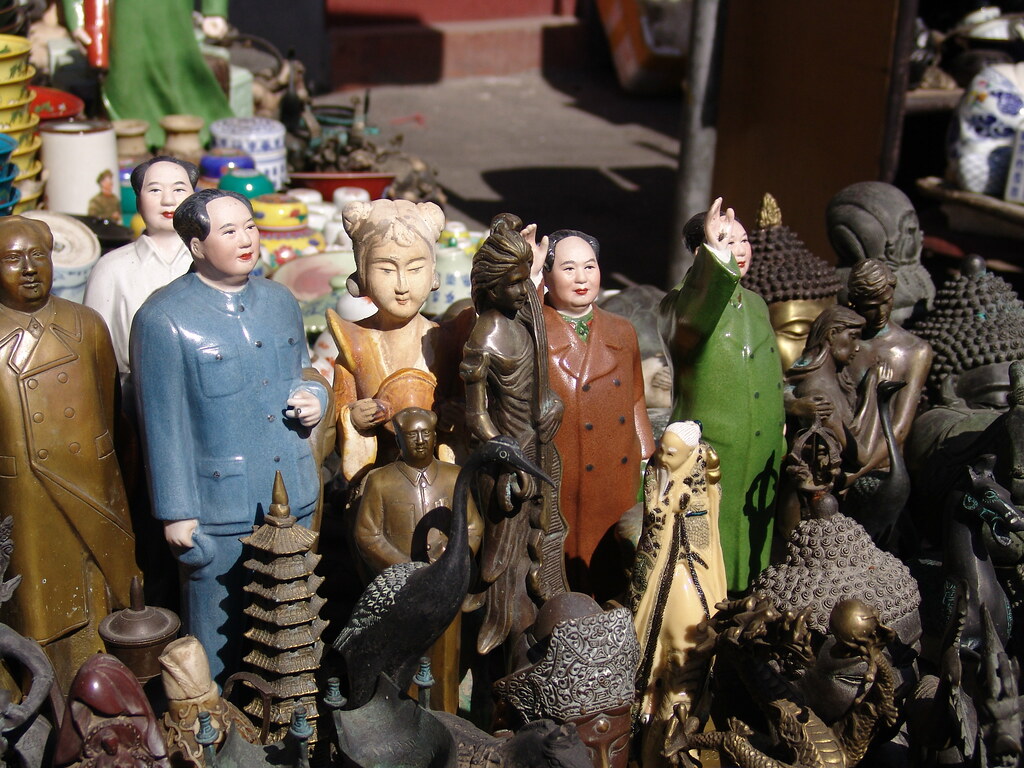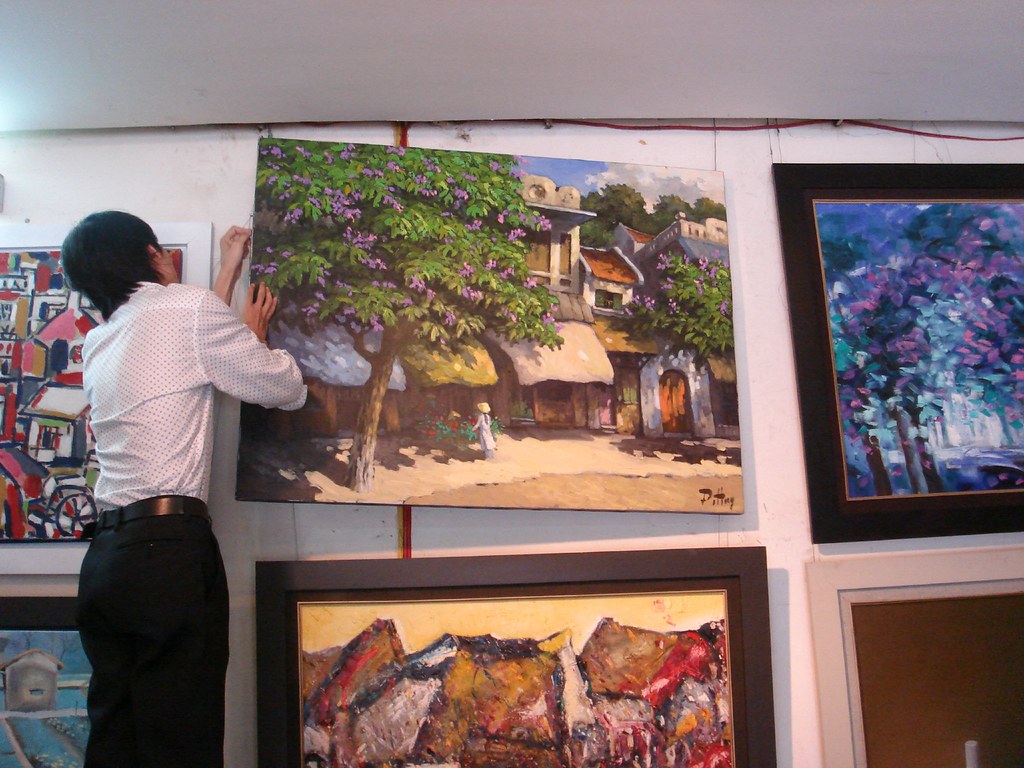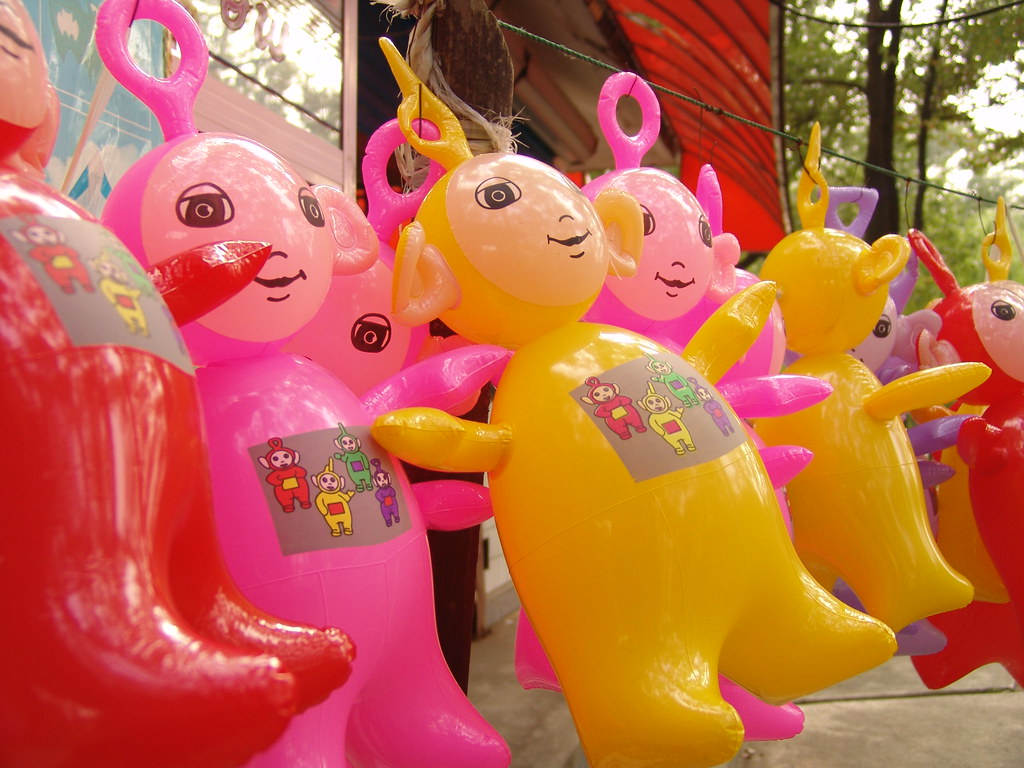
You go on holidays, you have fun, you want to buy something to remember the trip. What should you get? Walk into any shop vaguely near a tourist hot spot and you'll be confronted with a plethora of tourist goodies, just waiting to leap into your bag and suck out your cash. But what's a good buy and what's just rubbish? Being a long term victim of tourist kitsch, here's my thoughts on what you should spend your hard earned cash on.
Tip 1: Buy a lot of the same thing
Buying a single snow globe or a single thimble is a bit of a lost cause, but buying a snow globe every place you go gives you some kitsch chic. Well, sort of. Having a collection of anything at least justifies you seeking out some random junk to buy. It also makes wandering through the endless tourist shops a bit more interesting.
I started out buying snow globes. I mean, how tacky are they! They're almost so tacky that they've go through the tacky tunnel and have emerged as legitimately cool. Sort of. The only problem I have, however, is that not everyone is in on the snow globe as a tourist item. Sure, you can get them all over the US and Australia, most places in the UK, but buying one in Asia is a little on the hard side. Forget about finding any in Africa.
Other popular things to collect are pens - they're readily available and easy to knick, I mean borrow. The downside, is that they're a bit lame. Another popular item is thimbles. Again, not widely available everywhere, but they can be found if you hunt. But why would you want to? No one is going to find 50 thimbles cool, ever. Forget it. Only slightly more cool than the thimble is the novelty spoon. At least you can stir your cuppa with a spoon. Again, they are very tacky though.
My collection is choice is packets of playing cards. Consider them as conveniently bundled packs of post cards. The backs of the cards usually have a nice pic of your destination, probably better than most you take yourself! They're also useful - you can, you know, play cards with them! They're also small, light weight and stack on top of each other nicely in your cupboard when you get home. You know they're going in the cupboard, right? Or are you going to erect a shrine to "cards of the world"? Chuck them in the cupboard with the rest.
Tip 2: Avoid small things
This is fairly generic, but important to remember. Buying 3 mirror coloured elephants from India, a bronze eagle from Greece and a jade rabbit from China might be fun at the time, but seriously, what are you going to do with them when you get home? They don't create any sort of visual impact and they just gather dust. Unless you like your home to look like Aunty Ethel's bedroom, avoid small souvenirs.
Instead, you should think BIG. Buy one huge bronze sculpture from Hungary or one really big painted kite from China. They make an impact when you pull them out of the cupboard to show your friends. I'm a big fan of bronze sculptures. Sure, they're big and heavy, but you can chuck them in your bag, not care if they get bashed about and they look good sitting on your shelf. Lamps are also good. If you go to Morocco and don't bring home a lamp, you've missed a trick!
Porcelain is also a good option. It's not as tough as bronze, but it's cheaper and lighter. Just don't buy anything that looks like it's come out of a mail order catalog.
Tip 3: Buy something that's quality
Rather than cluttering your house with thousands of small cheap, tacky items, pool your money and buy one nice thing. I've already mentioned bronzes and porcelain, but most places have tourist quality gifts, then they have the real stuff. Sure, it's more expensive, but you might actually appreciate it when you get home and put it on show somewhere in your house, rather than chucking it in your cupboard.
Tip 4: Buy something useful
There's a lot of tourist paraphernalia that has some practical use. A lot of countries are renown for their pottery. Buying a few plates from Morocco, Turkey or Spain is a good idea. You can take them home, then actually use them next time you have a BBQ or a dinner. They look cool and aren't something you can get down your local shop. Just be tasteful. Don't buy a plate from Spain with a bull painted on it. If you're ever in Turkey, buy a bunch of metal kebab skewers. They're cheap and really useful!
Another great thing to buy is Christmas decorations, especially in Europe and the US. Each country has their own unique take on what a Christmas decoration should look like. In northern European countries, the emphasis is on hand crafted, often wooden decorations. In the US, the emphasis is on glitz and glitter and really random things. My favourite US decoration is a Santa Claus with a shot gun chasing some ducks. That's just plain odd.
Tip 5: Support local artists
In a lot of poorer countries, there is a thriving local art scene. For a reasonable amount of cash, you can pick up an original piece of art. That will be a great reminder of your trip, as well as supporting the local artists. Getting it home could be a bitch, but it's worth it. If you're buying a painting or a print, just remember the cost to frame it when you get home could be more than you actually paid for the picture!
Tip 6: Ship it home
If you see something big, expensive or heavy, you can often get things shipped home. A lot of places will offer to do this for you. Are they trying to scam you? Probably not. The trick here is to ensure you pay with a credit card. If the item never turns up, then there's a fair chance you can get your cash back from the credit card company. Check this out before you travel.
Tip 7: Give it away
If your home is already full to the rafters with junk, give it away. I'm always surprised how much people appreciate some random gift from a strange company. One man's trash is another man's treasure. Mind you, the people you give it to might just throw it straight into the bin, but it's the thought that counts.
Just remember what your budget is, how big your bag is and how good you are are sweet talking your way around excess baggage charges.
Monday, April 2, 2007
Top 7 things to buy on your next holiday
Subscribe to:
Post Comments (Atom)







No comments:
Post a Comment